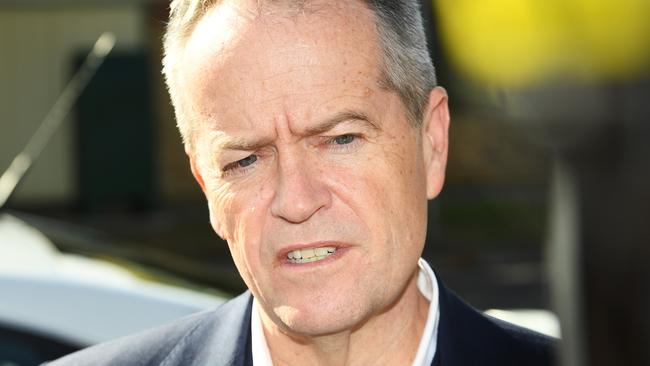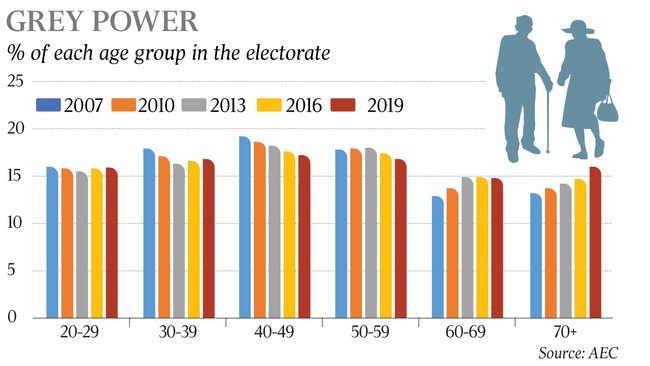Intergenerational war proves a dud deal for Shorten
Bill Shorten’s plan to energise young voters resentful of baby boomers’ easy ride appears to have played a role in his defeat.

Bill Shorten’s plan to energise young voters resentful of the baby boomers’ easy ride appears to have played a role in his defeat, political analyst Jill Sheppard believes.
“The Labor Party seemed to just draw a line under older voters, conceded they wouldn’t vote for them and focused on younger voters,” Dr Sheppard, a researcher with the Australian Election Study, said. “Now that’s fine as long as Labor could really tie up the vast majority of younger voters — and that doesn’t seem to have been the case.”
Although there was much talk of a youth revolt against the government, the share of people on the electoral role aged 70 or older had risen from 13.2 per cent in 2007 to 16 per cent in 2019. The share of 18-24 year olds fell.
Ten days out from the election, Mr Shorten said voters under 40 were getting “a dud deal” and cited “an intergenerational bias in the taxation system”.
Cutting back tax breaks for property investors was ALP policy.
In January, Labor Treasury spokesman Chris Bowen said those targeted by its plan to rein in cash refunds for typically older investors with franking credits were “entitled to vote against us”.
The last of the baby boomers are only now reaching the age of 55, meaning grey power politics will be a factor for decades.

Dr Sheppard said it would “get more tricky for both parties — particularly for Labor — because parties are going to be talking to very different parts of the electorate.
“They’re going to find that working Australians — looking to get into the housing market, to accumulate wealth — are very different from people already in the market, who have accumulated wealth and are enjoying the spoils of their working life.”
In hindsight, she said, the cleverness of Scott Morrison’s detail-lite campaign was obvious. It allowed the Coalition to play to all age groups, whereas Labor’s “zero sum” policies on negative gearing and franking credits had to get the votes of enough winners to offset the pro-Coalition votes of losers.
However, two other election analysts said early data did not show an age effect at the electorate level.
Danielle Wood of the Grattan Institute said 20 wealthy suburbs with “enthusiastic negative gearers” had swung away from the Coalition, and this also happened in most of the 20 postcodes with large franking credit claims.
Ms Wood said it was possible an age effect might emerge when the authoritative Australian Election Study puts out its post-poll analysis, probably in November.
A separate early study by ANU’s Ben Phillips found that swings to the Coalition were correlated with less-educated workers on low incomes who were unlikely to be hurt by Labor’s tax changes.
Investment manager Geoff Wilson, who ran a campaign against franking credit changes, said Mr Shorten had failed to take into account the intergenerational fallout from depriving self-funded retirees of income.
Almost half of 30,000 investors who signed his petition said their children or grandchildren would register a protest vote because their elders faced unfair treatment.



To join the conversation, please log in. Don't have an account? Register
Join the conversation, you are commenting as Logout